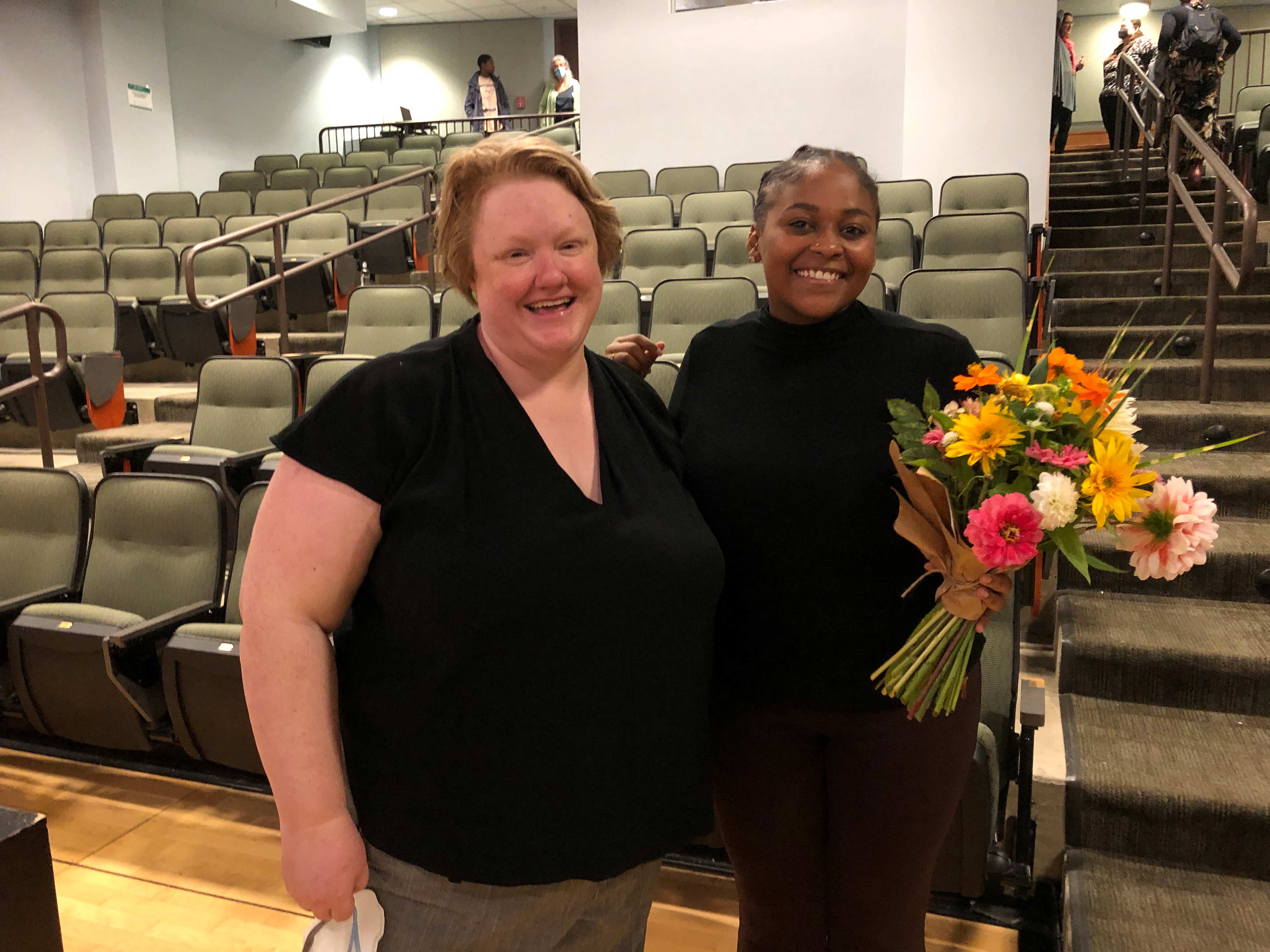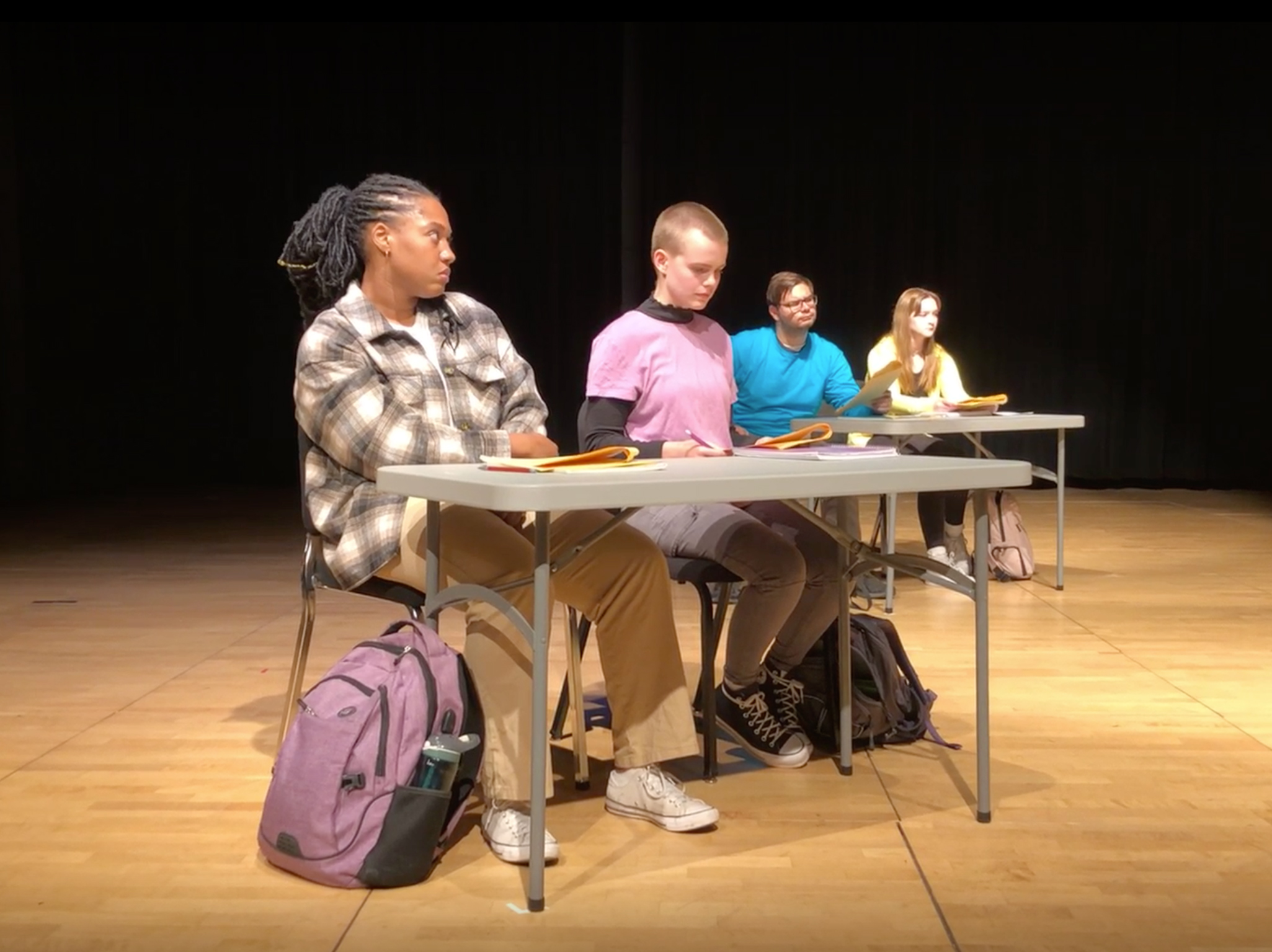Transforming Theatre Ensemble Provides Opportunities for Students to Reimagine Campus
October 23, 2022 - Brigita Felkers
All theatre performances convey messages to their audience, but Michigan State has taken this a step further with the Transforming Theatre Ensemble, or TTE, which provides immersive experiences that engage faculty, staff and students.
Excerpt video clip of "Future Visions" Blackness Reimagined" by Playwright Crystal Bernard. Video recorded by Mina Shin.
These shows specialize in opening the eyes of the MSU community through storytelling. After each performance, audiences participate in a discussion led by a facilitator that is intended to help viewers reflect on and analyze the dynamics in the play.
In partnership with the Department of Theatre, TTE has recently expanded by adding a playwriting fellowship that showcases student-written and student-performed plays with a focus on social justice. Its purpose is to give a platform for the fellows to share their stories to influential members of the community.

Lynn Lammers (left) and Crystal Bernard, playwright, pose together after the successful performance.
“Students have stories to tell, and they need someone to put the resources together and gather an audience of people who make decisions,” said Lynn Lammers, artistic coordinator for TTE. “That is why we started this fellowship. Student stories, which are already out there, can get their due, get seen and get taken seriously by the people who can really make a difference and are the actual deciders.”
The most recent of these performances took place on Sept. 29 in the Residential College of Arts and Humanities theatre: and was written by MSU graduate and 2021-22 playwriting fellow Crystal Bernard.
The play, titled “Future Visions: Blackness Reimagined,” was 15 minutes long and began with a depiction of an average classroom that you might find at any American university in 2022. In the second act, the characters are transported to an alternate reality. In this scene, the playwright shares her vision of an Afro-Futuristic class setting where both staff and students have changed the way they approach learning to center Black students.

Main character Olamina (left) sits in a modern day classroom, portraying to the audience how Black students are treated.
Instead of the type of classroom where the show began and students were unengaged and ignoring Black voices, Bernard’s envisioned future engaged all white and non-Black characters, who showed up in a way that honored and gave focus to what the Black students can bring. The characters in the play had not only completed their fictional homework and research assignments that centered Black thinkers and writers, but implicitly understood the importance of that work. The students depicted in Bernard’s play demonstrated deep critical thinking, openness and gratitude for being exposed to new ways of thinking.
This portion of the show was set in the future, but Lammers thinks that a classroom like this could be closer than imagined.
“What is powerful about what Bernard wrote is that it is hopeful and possible,” Lammers said. “It can bring together faculty and administration conversations about classroom policy and reshape how we show up for Black students at a predominantly white institution.”
Following the performance, the audience was involved in a panel discussion with guided questions. The panel, moderated by Erika Tigg Crews, diversity, equity and inclusion coordinator academic specialist of the Honors College, included Dr. LeConté J. Dill, associate professor of African American and African Studies; Dr. Genyne L. Royal, assistant vice president of diversity, equity, inclusion and belonging in Student Life and Engagement; and Dr. Denise Troutman, associate professor in the Department of Writing, Rhetoric and American Cultures and the Department of Linguistics, Languages and Cultures. A bibliography of resources for continued learning was provided for all participants.
Shows like Bernard’s encapsulate the core values of TTE by encouraging this kind of discourse that can take a step toward any kind of transformation.

